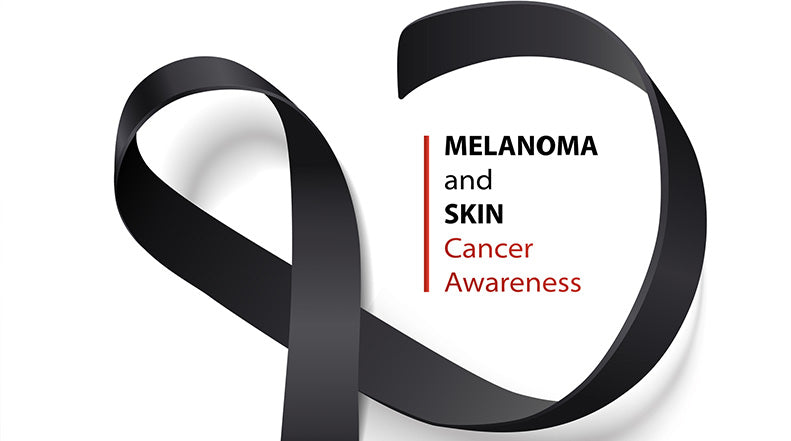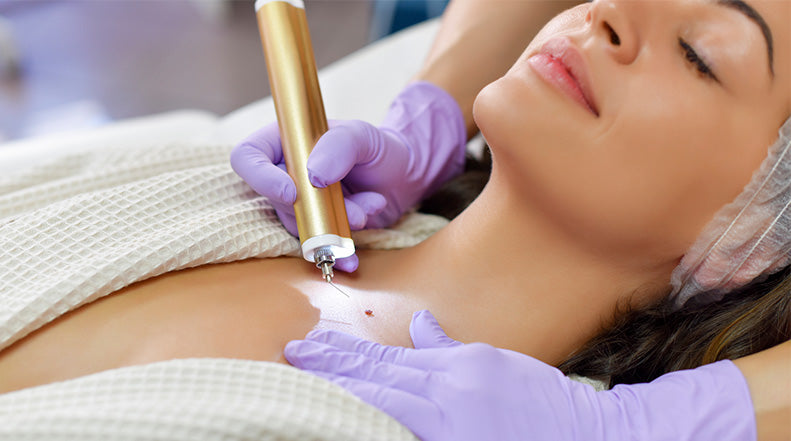Why You MUST Protect Your Scars with an SPF

While getting enough vitamin D by exposing your skin to the sun is extremely good for general health, overexposure can be harmful and increase the risk of skin cancer and impact the appearance of any scars you may have. UV damage is a very serious problem for the body and can cause lifelong complications if not protected against. One of the lesser known complications of sun exposure is its negative impact on the appearance of exposed scars. Here is why you should be wearing an SPF all year round!
WHAT HAPPENS WHEN A SCAR IS EXPOSED TO UV RAYS
The fresher the scar is, the more vulnerable it is to harsh UV rays from the sun. These ultraviolet rays will only further harm your new scar, especially if it is still pink and healing. A scar at this beginning stage will burn much easier than areas where your skin is not scarred. If you allow a new scar to be exposed to prolonged amounts of sun, it may trigger the inflammation of the healing tissue and cause post inflammatory hyperpigmentation. Also known as inflammatory disorder of the skin, it causes an increase in pigmentation within the scar. While this is something that occurs more often with darker skin colors, it can happen to anyone. The pigmentation development tends to be more pronounced in individuals who have longer exposure to the sun and the effects can be irreversible.
This darkening is caused when excess melanin, the brown pigment that produces normal skin color, forms deposits in the skin. The altered appearance of your scar can last for years and may possibly be permanent. Scars should be protected from the sun year round, not just during the summer months when the sun feels the hottest. Anyone who is trying to reduce their scar’s noticeability should cover their scar with sunblock whenever it will be exposed to natural or artificial UV light. The higher the SPF, the better!
HOW TO PROTECT YOUR SCAR FROM THE SUN
Start protecting your scar by choosing a great sunscreen. But what should you be looking for? First look at the product’s SPF (sun protection factor) which is one of the most important aspects for choosing an effective sunscreen. The FDA defines SPF as “how well a sunscreen protects you from sunburn”. This means that the number following SPF on the label will correlate with how much UVB radiation that product can filter out. For instance, SPF 15 can filter 93% of the sun’s UVB rays, whereas SPF 30 can filter 97%. The American Academy of Dermatology recommends using a broad-spectrum sunscreen with an SPF of 30 or higher every day.
Next, look for the words “broad spectrum” or “full spectrum” on the sunscreen label. According to the FDA, broad spectrum means that the sunscreen can protect you from the sun’s harmful ultraviolet A (UVA) and ultraviolet B (UVB) rays. UVA rays can prematurely age your skin, whereas UVB rays can burn your skin. Both types can cause the post-inflammatory hyperpigmentation mentioned earlier.
Another great way to protect your scar is to cover it, whether that be with clothing, a bandage, or tape. NewGel+ offers many products that can protect your scar from the sun while simultaneously helping your scar to heal better and faster. For example, the NewGel+ sheets, strips, and shapes all physically cover your scar so that it is not exposed to damaging UV rays. In particular, the beige fabric-backed sheets, strips and shapes provide a sun barrier. Plus, these products are all formulated to deliver medical grade silicone gel to the scar tissue.
SILICONE PRODUCTS PROTECT SCARS
Silicone gel has been used for more than 30 years in the treatment of scars and is considered to be the gold standard of topical, non-invasive scar treatment options. Silicone gel exerts many mechanisms to help wounds and scars to heal, such as providing adequate hydration and occlusion, as well as minimizing the risk of bacterial infection.
If you choose not to protect your scar from the sun by physically covering it, the next best option is to apply a broad spectrum sunscreen, or even better, a silicone gel with sunscreen! It’s important to protect your scars using a broad spectrum sunscreen with an SPF of at least 30, like NewGel+UV! Our product provides SPF 30 protection with zinc oxide as its active ingredient making it a chemical-free (mineral) sunscreen. Overall, protecting your scar from UV rays increases the chance that it will blend with the rest of your skin once it has completely healed. To further help your scar heal as smooth and flat as possible, try one of the many other NewGel+ products that are clinically proven to improve the appearance of your scar.




Comments